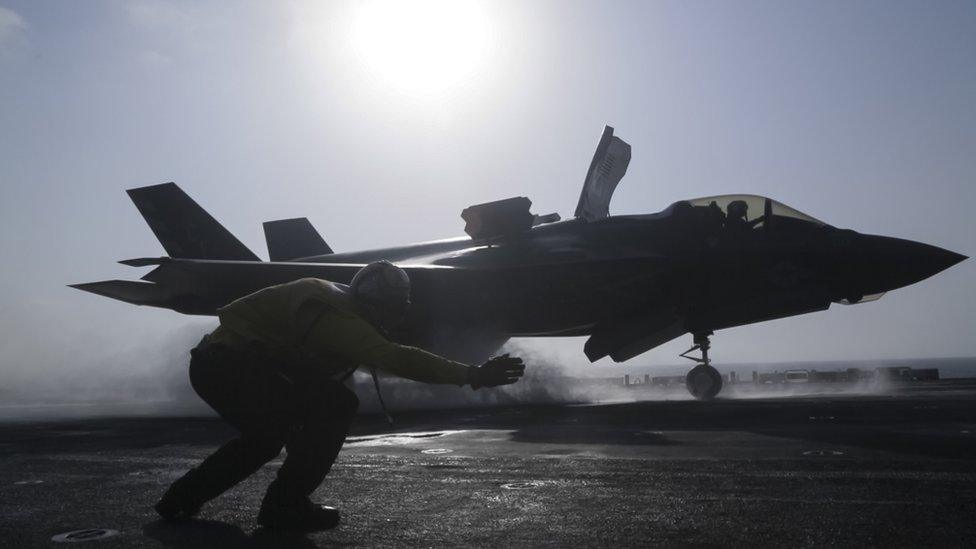Iran tanker row: UK to send second warship to the Gulf
- Published
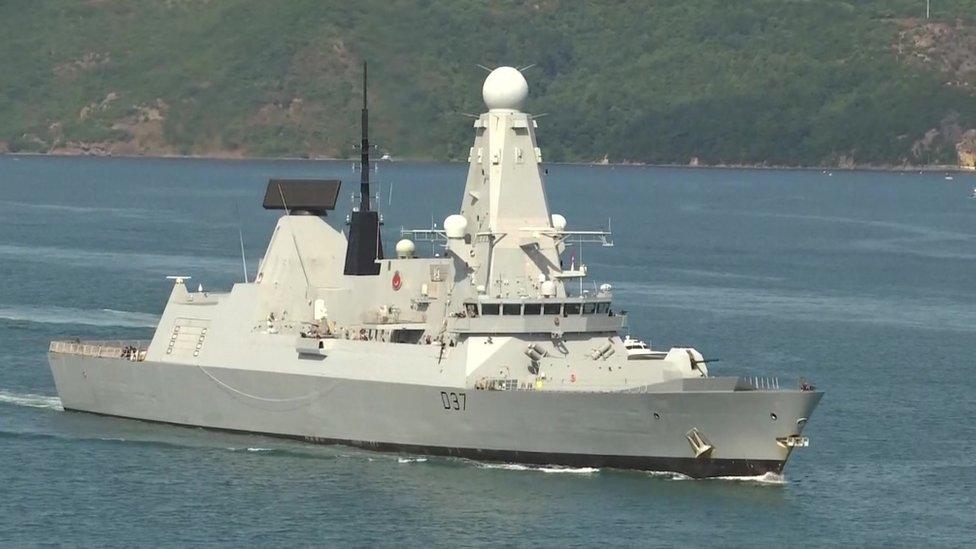
HMS Duncan is going to become the second UK warship in the Gulf
The UK has brought forward plans to send a second warship to the Gulf amid rising tensions with Iran.
HMS Duncan is currently in the Mediterranean and is expected to join HMS Montrose in the region next week.
It comes after the UK government said Iranian boats tried to impede a British oil tanker in the Gulf on Wednesday.
Meanwhile, Iran has reiterated calls for the UK to release an Iranian-owned oil tanker that was detained by Royal Marines in Gibraltar last week.
An Iranian official, speaking to state news agency IRNA, warned the UK not to get involved in "this dangerous game".
The relationship between the UK and Iran has become increasingly strained in recent weeks.
On Tuesday, the UK raised the threat to British shipping in Iranian waters in the Gulf to the highest level - where the risk of attack is critical.
The following day, boats believed to belong to Iran's Islamic Revolution Guard Corps (IRGC) approached the British Heritage tanker and tried to bring it to a halt as it was moving out of the Gulf into the Strait of Hormuz.
HMS Montrose, a British frigate shadowing the BP-owned tanker, was forced to move between the three boats and the ship, a Ministry of Defence spokesman said.
Iran denied any attempted seizure.
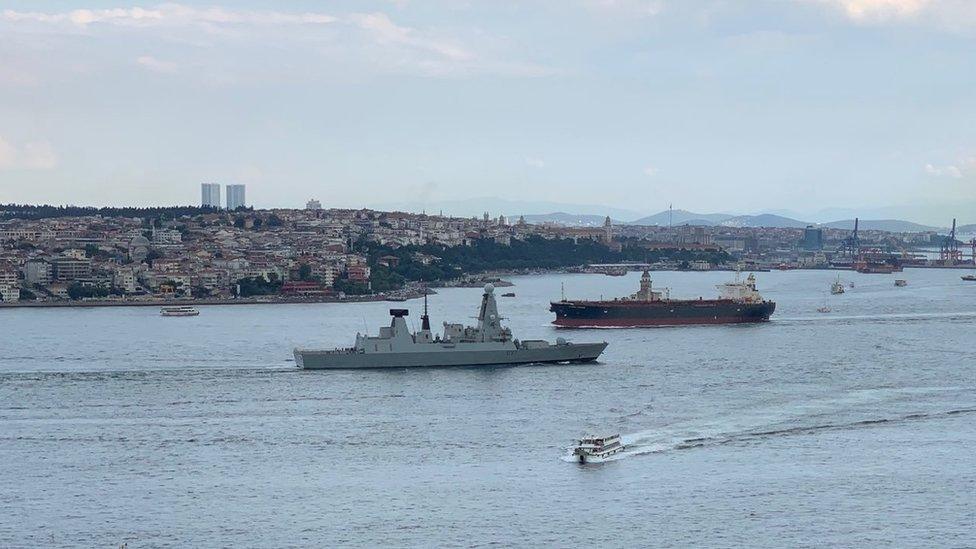
HMS Duncan was spotted by a BBC producer in Istanbul on Friday afternoon
HMS Duncan, a type 45 Destroyer, will operate alongside HMS Montrose in the Gulf for a short period, before HMS Montrose goes back to Bahrain for routine maintenance.
A government spokeswoman said: "As part of our long-standing presence in the Gulf, HMS Duncan is deploying to the region to ensure we maintain a continuous maritime security presence while HMS Montrose comes off task for pre-planned maintenance and crew changeover.
"This will ensure that the UK, alongside international partners, can continue to support freedom of navigation for vessels transiting through this vital shipping lane."
Foreign Secretary and Tory leadership candidate Jeremy Hunt - who earlier said events in the Gulf showed the Royal Navy needs more warships, external - told the BBC the UK wanted to "de-escalate the situation" but had "a responsibility to protect British shipping".


British ministers and officials have been stressing they do not want tensions with Iran to "escalate".
The risk of sending a second warship to the region is that it'll send the wrong signal. How will Iran view it other than an escalation?
The reality though is there were already plans to send Duncan to join the frigate HMS Montrose already based in the region.
Montrose has been working hard and is due to undergo routine maintenance. Her crew who have been working at a heightened tempo in recent weeks will also need a break.
Both warships will be operating together in the region for a short period. But in the current climate ministers clearly felt it was too risky to allow a gap in providing a military escort to British merchant shipping in the region.

Last week, Royal Marines helped the authorities in Gibraltar - a British overseas territory - seize the Iranian-owned tanker Grace 1 amid suspicions it was carrying oil to Syria, in breach of EU sanctions.
Iran suggested the UK seized the tanker "at the behest of" the US government. It also denied the tanker was bound for Syria and threatened to seize a British oil tanker in retaliation.
Why does the Strait of Hormuz matter?
Tensions escalated between the UK and Iran after Britain said the Iranian regime was "almost certainly" responsible for attacks on two oil tankers in June.
The ongoing imprisonment of Nazanin Zaghari-Ratcliffe is also a long-standing bone of contention between the two countries.
The UK continues to press Iran to release the British-Iranian mother who was jailed for five years in 2016 after being convicted for spying, which she denies.
Relations between Iran and the US are also under duress, after the Trump administration pulled out of an international agreement on Tehran's nuclear programme and reinforced punishing sanctions against Iran.
The US blames Iran for attacks on six oil tankers in May and June.
It has said it wants to create a multi-national military coalition to safeguard waters around Iran and Yemen.
The US said it was talking to a number of countries with the "political will" to support the plans, which would include providing boats to escort commercial ships through the area.


Providing armed naval escorts for commercial shipping is expensive, time-consuming and requires a fair degree of logistical planning and coordination between different countries.
It's been done before in the Gulf, in the late 1980s, when the US Navy escorted Kuwaiti oil tankers during the Iran-Iraq war.
More recently, several navies have provided escorts for shipping passing between Yemen and Somalia, protecting them from attacks by Somali pirates.
But, ultimately, these military escorts can only be a temporary remedy for a much deeper problem that needs resolving.
If tightening sanctions on Iran prevent that country from exporting most of its oil then the temptation by its senior commanders to lash out in response will only grow stronger.

- Published11 July 2019
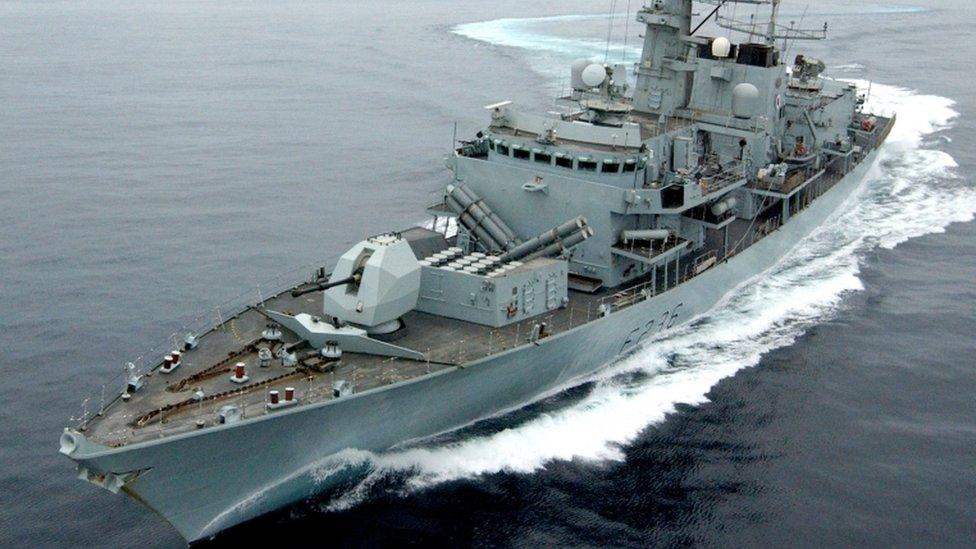
- Published21 June 2019
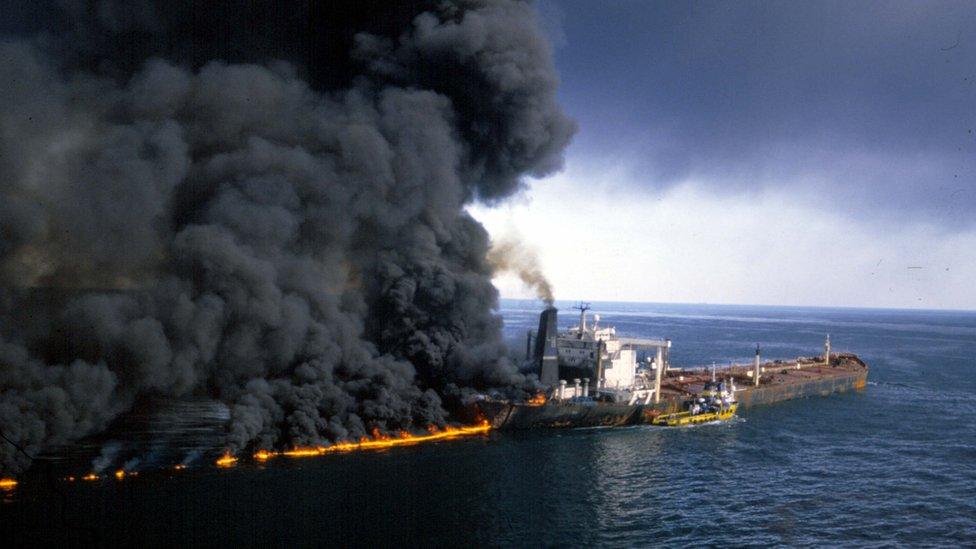
- Published23 May 2022

- Published25 June 2019
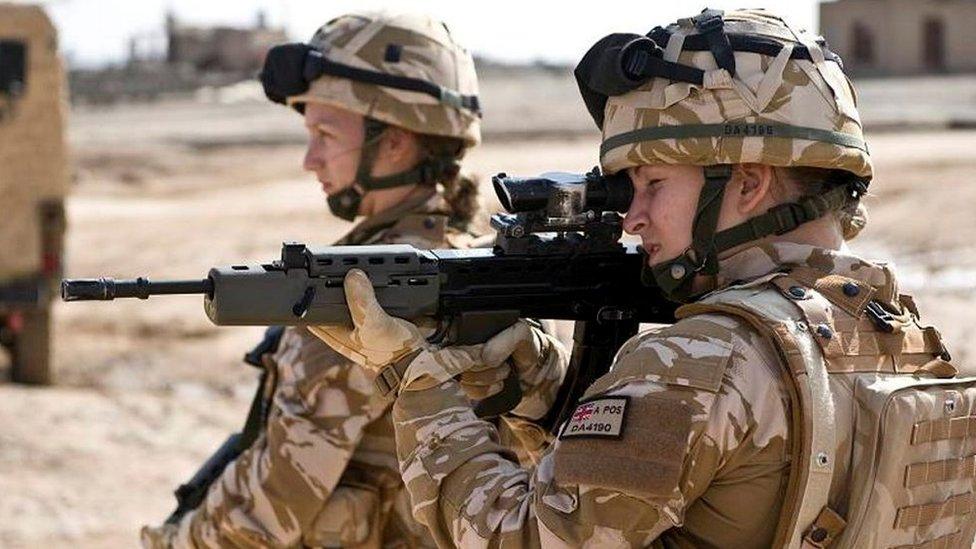
- Published1 February 2019
